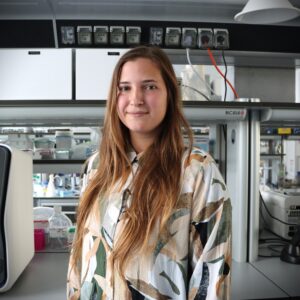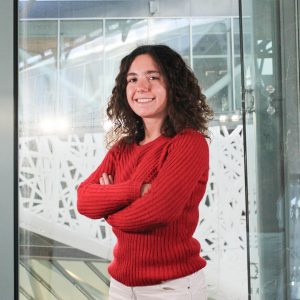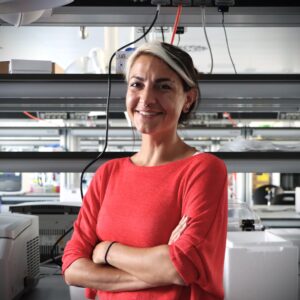
Iorio Group
Iorio group’s Apps, Tools and Computable Manuscripts
The Iorio Group works at the interface of biology, machine learning, statistics and information theory with the goal of understanding and predicting how genomic alterations and molecular traits from other omics contribute to pathological processes, biological circuits’ rewiring and have an impact on therapeutic response in human cancers and other diseases.
Our research aims at advancing human health by designing algorithms, computational tools and novel analytical methods for the integration and the analysis of pharmacogenomics and functional-genomics datasets, with the objective of identifying new therapeutic targets, biomarkers and drug repositioning opportunities.
With our experimental collaborators, we are contributing to the creation of a comprehensive map of all the genetic dependencies occurring in human cancers, and to the development of a computational infrastructure for translating this map into guidelines for early-stage drug development and precision medicine.
The Iorio Group designs, implements and maintains bioinformatics methods and original tools for the assessment of cancer pre-clinical models, the pre-processing, analysis and visualisation of genome-editing screening data, for the in-silico correction of new-technology-specific biases in such data, and for the optimization of single guide RNA libraries for pooled CRISPR-Cas9 screens and other experimental settings.
We are also interested in big-data analytics, the development of biomedical predictive models based on non-biomedical data, and computationally efficient constrained randomization strategies for testing combinatorial properties in large-scale genomic datasets and networks.
Group members
-
 Francesco Iorio
Francesco Iorio
Research Group Leader -
 Fateema Hani Bazzi
Fateema Hani Bazzi
Undergraduate Intern -
 Lorenzo Mathieu Brochier
Lorenzo Mathieu Brochier
PhD Student -
 Ottavio Croci
Ottavio Croci
Senior Data Scientist -
 Irene Fernández Rebollo
Irene Fernández Rebollo
PhD Student -
 Raffaele Iannuzzi
Raffaele Iannuzzi
PhD Student -
 Athanasios Oikonomou
Athanasios Oikonomou
Postdoc -
 Flavio Passante
Flavio Passante
PhD Student -
 Ludovica Proietti
Ludovica Proietti
Postdoc -
 Nevenka Radic
Nevenka Radic
Postdoc -
 Aurora Savino
Aurora Savino
Postdoc -
 Vanessa Spagnolo
Vanessa Spagnolo
Technician -
 Yasin Tepeli
Yasin Tepeli
Scientific Visitor -
 Gianluca Vozza
Gianluca Vozza
Postdoc
Publications
-
01/2021 - Genome Biology
Minimal genome-wide human CRISPR-Cas9 library
CRISPR guide RNA libraries have been iteratively improved to provide increasingly efficient reagents, although their large size is a barrier for many applications. We design an optimised minimal genome-wide human CRISPR-Cas9 library (MinLibCas9) by mining existing large-scale gene loss-of-function datasets, resulting in a greater than 42% reduction in size compared to other CRISPR-Cas9 libraries while […]
-
01/2021 - Nature Computational Science
Redefining false discoveries in cancer data analyses
The nature of biological networks still brings challenges related to computational complexity, interpretable results and statistical signifcance. Recent work proposes a new method that paves the way for addressing these issues when analyzing cancer genomic data.
-
10/2020 - Nucleic Acid Research
Project Score database: a resource for investigating cancer cell dependencies and prioritizing therapeutic targets
CRISPR genetic screens in cancer cell models are a powerful tool to elucidate oncogenic mechanisms and to identify promising therapeutic targets. The Project Score database (https://score.depmap.sanger.ac.uk/) uses genome-wide CRISPR–Cas9 dropout screening data in hundreds of highly annotated cancer cell models to identify genes required for cell fitness and prioritize novel oncology targets. The Project Score […]
-
08/2020 - Patterns
Identification of Intrinsic Drug Resistance and Its Biomarkers in High-Throughput Pharmacogenomic and CRISPR Screens
High-throughput drug screens in cancer cell lines test compounds at low concentrations, thereby enabling the identification of drug-sensitivity biomarkers, while resistance biomarkers remain underexplored. Dissecting meaningful drug responses at high concentrations is challenging due to cytotoxicity, i.e., off-target effects, thus limiting resistance biomarker discovery to frequently mutated cancer genes. To address this, we interrogate subpopulations […]
-
08/2020 - Pigment Cell and Melanoma Research
Analysis of CRISPR‐Cas9 screens identify genetic dependencies in melanoma
Targeting the MAPK signaling pathway has transformed the treatment of metastatic melanoma. CRISPR‐Cas9 genetic screens provide a genome‐wide approach to uncover novel genetic dependencies that might serve as therapeutic targets. Here, we analyzed recently reported CRISPR‐Cas9 screens comparing data from 28 melanoma cell lines and 313 cell lines of other tumor types in order to […]